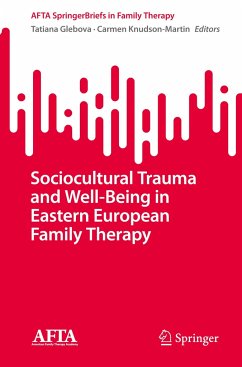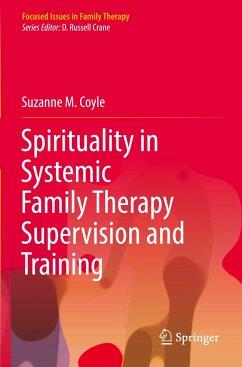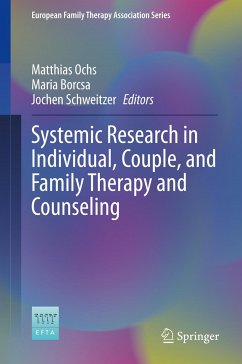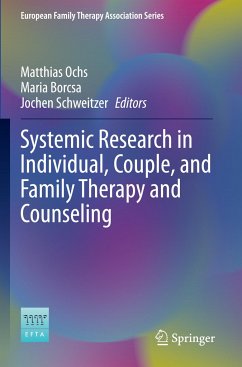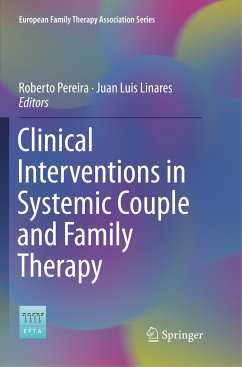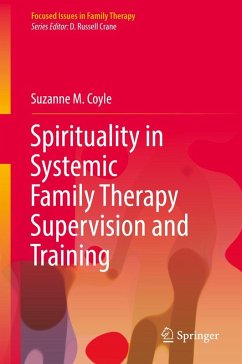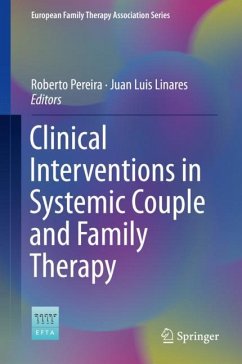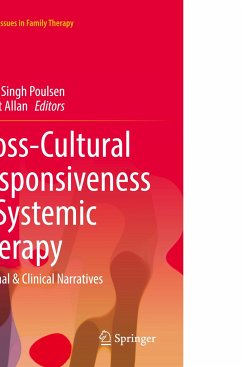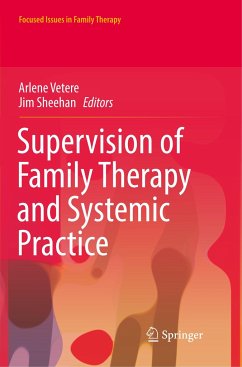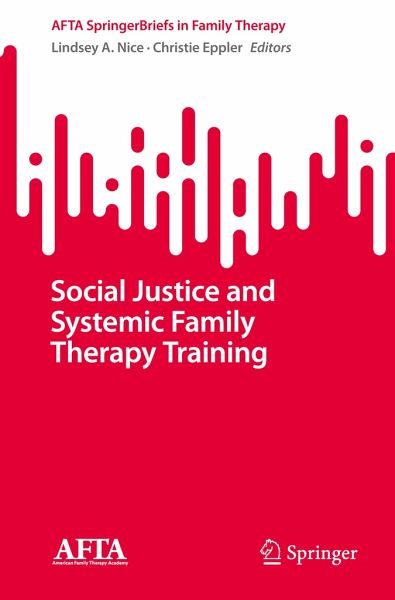
Social Justice and Systemic Family Therapy Training

PAYBACK Punkte
19 °P sammeln!
The book examines the lived experiences of systemic family therapy educators. It addresses the issues of power and justice that they face in family therapy training programs, including their teaching experiences with students, interactions with faculty, and challenges within academic institutions. It describes how family therapy programs attempt to incorporate cultural awareness with mixed results (e.g., focusing only on how to work with diverse clients or not supporting faculty from across social locations). The book explores the ways in which family therapy educators with intersecting margin...
The book examines the lived experiences of systemic family therapy educators. It addresses the issues of power and justice that they face in family therapy training programs, including their teaching experiences with students, interactions with faculty, and challenges within academic institutions. It describes how family therapy programs attempt to incorporate cultural awareness with mixed results (e.g., focusing only on how to work with diverse clients or not supporting faculty from across social locations). The book explores the ways in which family therapy educators with intersecting marginalized identities continue to be oppressed across different areas of academia.
The book addresses issues of power that systemic family therapy educators face within the academia itself at three different levels:
Personal interactions with students that create more complete understanding of issues of power.Professional interactions with colleagues that provide support and accountability.Political interventions aimed at changing the larger academic institution.
Chapters focus on countering unjust practices in academic settings. Authors reflect on personal experiences across these three levels and, then, offer concrete suggestions for intervention. These include teaching experiences or meaningful interactions with students that support empowerment or increased awareness; relationships with colleagues that promote accountability and growth; and needed changes or challenges to the larger structure of academia.
Social Justice and Systemic Family Therapy Training is an essential resource for clinicians, therapists, and practitioners as well as researchers, professors, and graduate students in family studies, clinical psychology, and public health as well as all interrelated disciplines.
The book addresses issues of power that systemic family therapy educators face within the academia itself at three different levels:
Personal interactions with students that create more complete understanding of issues of power.Professional interactions with colleagues that provide support and accountability.Political interventions aimed at changing the larger academic institution.
Chapters focus on countering unjust practices in academic settings. Authors reflect on personal experiences across these three levels and, then, offer concrete suggestions for intervention. These include teaching experiences or meaningful interactions with students that support empowerment or increased awareness; relationships with colleagues that promote accountability and growth; and needed changes or challenges to the larger structure of academia.
Social Justice and Systemic Family Therapy Training is an essential resource for clinicians, therapists, and practitioners as well as researchers, professors, and graduate students in family studies, clinical psychology, and public health as well as all interrelated disciplines.





